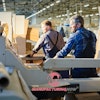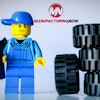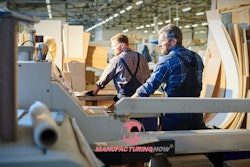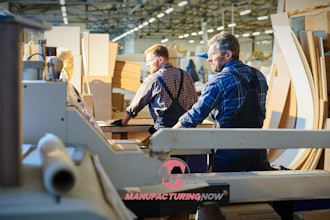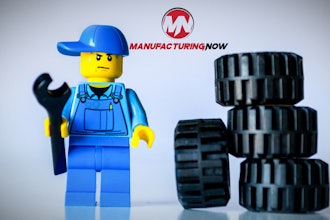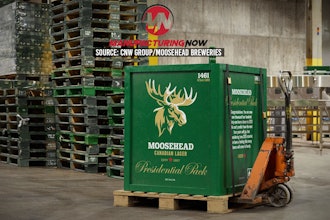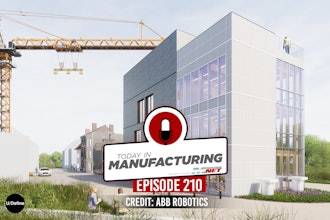A fire that struck a factory critical to the aerospace industry could threaten Boeing’s recovery plan as the plane maker looks for an alternative supplier of fasteners.
In February, a fire that took several days to control broke out at an SPS Technologies factory in Pennsylvania. The facility, about the size of 10 football fields, developed, manufactured and supplied a line of fasteners. According to AeroDynamic Advisory Managing Director Kevin Michaels, the site provided nearly 15% of the aerospace industry’s fastener supply.
The Wall Street Journal reported that Boeing CEO Kelly Ortberg said the company depends on SPS for many parts in its 787 and 737 jets but did not disclose the exact quantity or whether Boeing could access blocked inventory. Ortberg did, however, note that a parts shipment set for release before the fire became inaccessible.
Most Read on IEN:
Boeing will now explore other sourcing options. But some parts that the company uses in landing gear, engines and other areas have complex designs and must be made to withstand air travel, the Wall Street Journal reports.
The incident comes as Boeing attempts to regain profitability after losing more than $35 billion since 2019. In November, the Journal reported that Ortberg said the company would not achieve positive cash flow until 737 MAX production reached 38 units per month. Boeing has made progress toward this goal by rolling out nine in December, about 20 in January and 35 in February.
The company also recently closed one of its two shadow factories, which would pull mechanics and engineers from their regular work to focus on maintaining and repairing old planes rather than building new ones.
Click here to subscribe to our daily newsletter featuring breaking manufacturing industry news.
WEBVTT
X-TIMESTAMP-MAP=LOCAL:00:00:00.000,MPEGTS:0
00:00.009 --> 00:04.000
A fire that struck a factory critical to the
aerospace industry could threaten Boeing's
00:04.000 --> 00:07.869
recovery plan as the planemaker looks for an
alternative supplier of fasteners.
00:08.000 --> 00:12.329
In February, a fire that took several days to
control broke out at an SPS Technologies
00:12.329 --> 00:13.510
factory in Pennsylvania.
00:13.810 --> 00:16.719
The facility, about the size of 10 football
fields, developed,
00:16.799 --> 00:21.319
manufactured, and supplied a line of fasteners.
According to Aerodynamic Advisory managing
00:21.319 --> 00:25.959
director Kevin Michaels, the site provided
nearly 15% of the aerospace industry's fastener
00:25.959 --> 00:28.299
supply.
The Wall Street Journal reported that Boeing
00:28.299 --> 00:34.810
CEO Kelly Ortberg said the company depends on
SPS for many parts in its 787 and 737 jets,
00:34.880 --> 00:37.479
but did not disclose the exact quantity or
whether Boeing.
00:37.585 --> 00:39.736
Could access blocked inventory.
Orper did,
00:39.776 --> 00:43.605
however, note that a parts shipment set for
release before the fire became inaccessible.
00:43.736 --> 00:48.096
Boeing will now explore other sourcing options,
but some parts that the company uses in landing
00:48.096 --> 00:52.335
gear, engines, and other areas have complex
designs and must be made to withstand air
00:52.335 --> 00:53.776
travel.
The Wall Street Journal reports.
00:53.895 --> 00:58.285
The incident comes as Boeing attempts to regain
profitability after losing more than $35
00:58.285 --> 01:01.215
billion since 2019.
In November, the Journal reported that.
01:01.361 --> 01:06.272
Ortberg said the company would not achieve
positive cash flow until 737 Max production
01:06.272 --> 01:09.552
reached 38 units per month.
Boeing has made progress toward this goal by
01:09.552 --> 01:13.382
rolling out 9 in December, about 20 in January,
and 35 in February.
01:13.472 --> 01:16.501
The company also recently closed one of its two
shadow factories,
01:16.711 --> 01:20.472
which would pull mechanics and engineers from
their regular work to focus on maintaining and
01:20.472 --> 01:22.952
repairing old planes rather than building new
ones.
01:23.031 --> 01:25.031
I'm Nolan Bastein.
This is manufacturing now.


